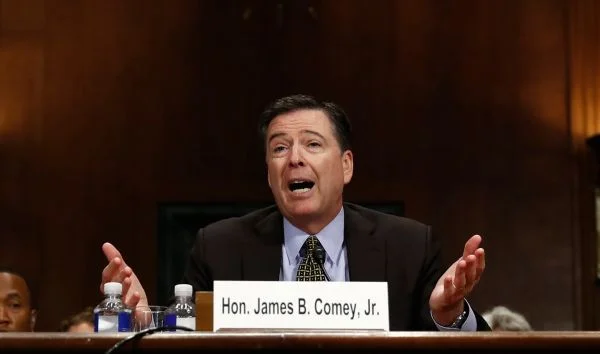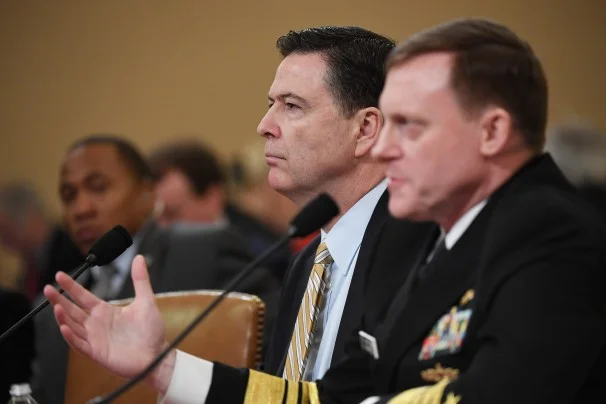Comey’s Testimony Emblematic of Bizarre Becoming New Norm in U.S. Politics by Luke Perry
Yesterday FBI Director James Comey defended his decision to inform Congress 11 days before the election of the FBI investigation of new emails by Hillary Clinton. Democrats, including Clinton herself, have since attributed her loss, at least in part, to Comey. There was nothing Comey could have said to change that, or even appease related criticism, short of acknowledging he made a big mistake and ask Congress and nation for forgiveness. Of course that didn’t happen. Comey did thoughtfully explain his rationale, share his agony over the decision, recognize the ramifications, and stand by his choices after reflecting on the alternatives.
Comey framed informing Congress of the new emails as the best choice between two bad options, to speak or conceal. Comey actually had two sets of options. First, whether to investigate the newly acquired e-mails before or after the election. Second, whether to inform Congress of this investigation before or after it occurred. Comey decided to investigate immediately and inform Congress before doing so.
We will never know if Comey was sincere in claiming to make these decisions apolitically. Regardless, he rightly deserves blame for not doing a better job navigating the FBI, an institution he clearly cares about, through extraordinarily challenging political terrain. Comey also deserves credit for publicly engaging questions and condemnations before Congress directly and professionally.
The only normal takeaway from yesterday’s proceedings was that smart people can disagree, though these disagreements don’t often directly influence the outcome of a presidential election. The thought of this made Comey “mildly nauseous;” a curious choice of words for an unusual situation.
The deeper take away is how the bizarre is becoming the norm in U.S. politics since the 2016 campaign, one that included the two least poplar nominees in history, both of whom were under investigation by the FBI. Meanwhile, WikiLeaks became a normalized part of U.S. political news. While national security was the paramount concern during yesterday’s testimony, as it should be, tacit acceptance of widespread theft should be weird and disturbing, but now sounds quaint in the digital age. There was nothing quaint about describing WikiLeaks as “intelligence porn,” but even this didn't get at unfettered publication of stolen property.
The 2016 campaign will not end until the FBI’s investigation into Russian election meddling is concluded. Until then, Democrats will continue to contest the legitimacy of the outcome, though the score is settled. And Republicans, led by President Trump, will return fire, angrily and awkwardly, as political enemies do, particularly when faced with unfamiliar and dangerous terrain.
When the investigation concludes, hopefully sooner, rather than later, Director Comey will likely be before Congress again, explaining what he and his agency did and didn't do. One can only wonder what inadvertent soundbites he will provide in his explanation.
Luke Perry (@PolSciLukePerry) is Professor of Government at Utica College.





